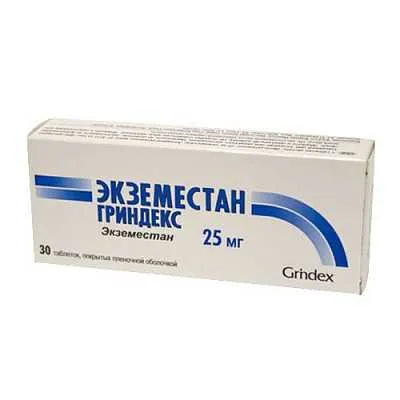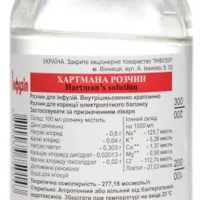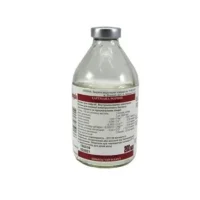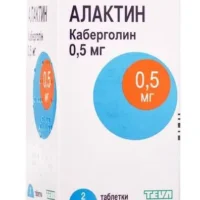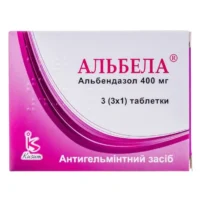Description
Exemestane Grindex (exemestane) Coated Tablets 25 mg. №30
Ingredients:
Each coated tablet contains 25 mg of exemestane.
Mechanism of Action:
Exemestane works by inhibiting the enzyme aromatase, thereby reducing estrogen levels in postmenopausal women. This action helps prevent the growth of estrogen-sensitive breast cancer cells.
Pharmacological Properties:
Exemestane is an irreversible steroidal aromatase inactivator. It lowers circulating estrogen levels, which may slow the growth of certain types of breast tumors that require estrogen to grow.
Indications for Use:
Exemestane is indicated for the adjuvant treatment of postmenopausal women with estrogen receptor-positive early breast cancer.
Contraindications:
Avoid using exemestane if you are pregnant, breastfeeding, or have a known allergy to any of the ingredients in the product.
Side Effects:
Common side effects of exemestane may include hot flashes, headache, fatigue, and joint pain. It is important to consult a healthcare provider if any adverse reactions occur.
Usage Instructions:
The recommended dosage is one 25 mg tablet taken orally once daily after a meal. Swallow the tablet whole with a glass of water; do not crush or chew the tablet.
Benefits Compared to Analogues:
Exemestane has shown significant efficacy in reducing the risk of contralateral breast cancer by 65% compared to a placebo, as demonstrated in a study published in the New England Journal of Medicine. Additionally, treatment with exemestane has been associated with improved disease-free survival rates in patients with early-stage breast cancer.
Suitable Patient Groups:
Exemestane is suitable for postmenopausal women with estrogen receptor-positive early breast cancer. It is not recommended for use in pregnant or breastfeeding individuals.
Storage and Shelf Life:
- Storage: Store at room temperature, away from moisture and heat.
- Shelf Life: Check the expiration date on the packaging and do not use the product if expired.
Packaging Description:
The product comes in packages containing 30 coated tablets, each tablet being 25 mg in strength.
Clinical Evidence and Proven Effectiveness:
Research has shown that exemestane significantly reduces the risk of cancer recurrence in postmenopausal women with early-stage breast cancer. Clinical trials have demonstrated its efficacy in reducing contralateral breast cancer risk and improving disease-free survival rates in patients treated with exemestane.

